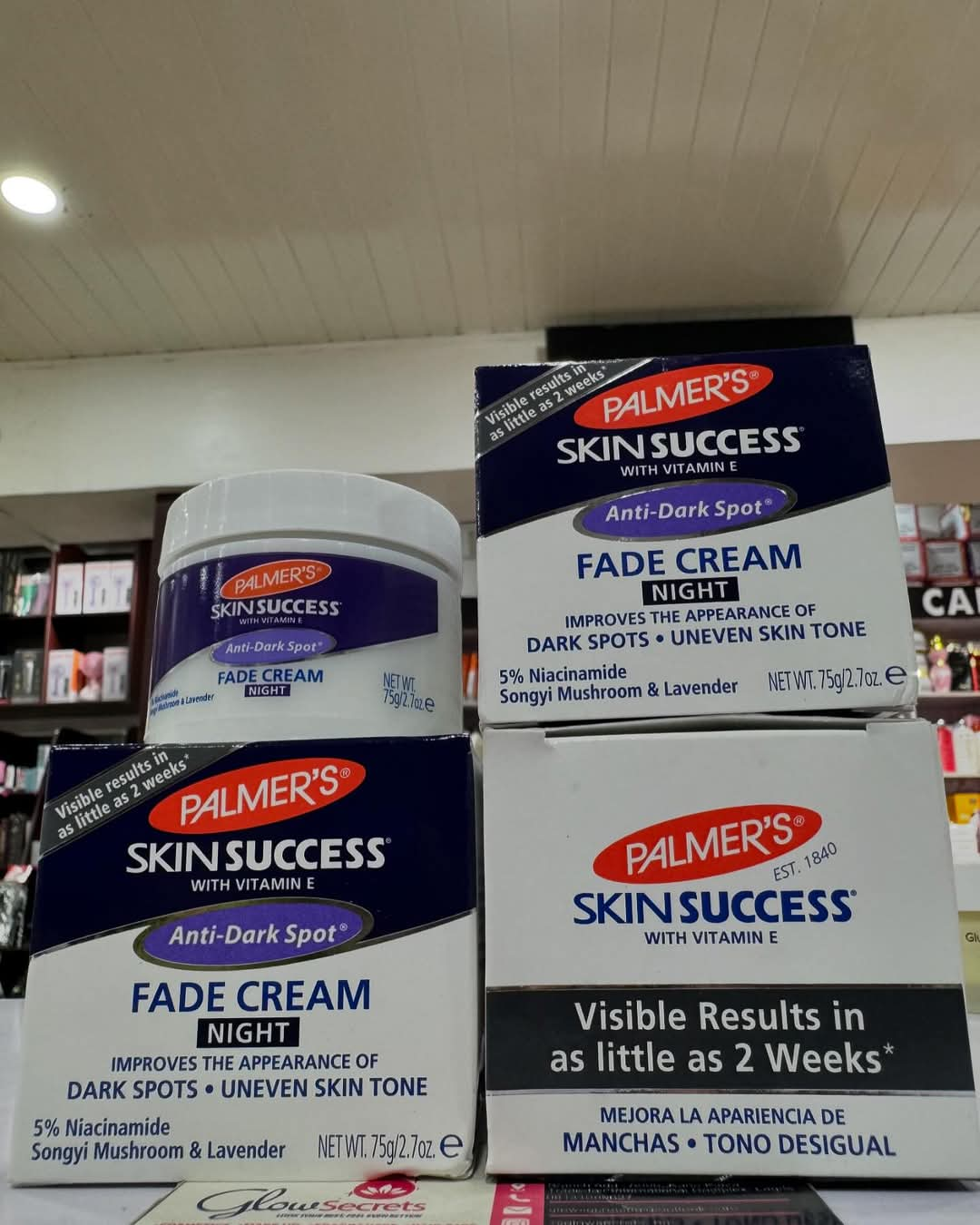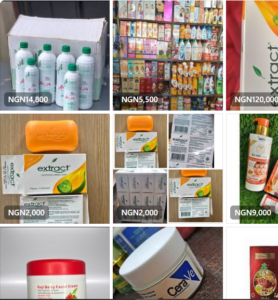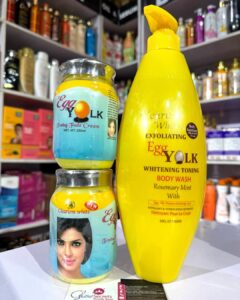Introduction
In the pursuit of radiant, even-toned skin, many individuals turn to skincare products that promise to address discoloration, dark spots, and hyperpigmentation. Among these, Skin Success Fade Cream has garnered significant attention, largely due to its claims of effectively fading skin imperfections. However, one question frequently arises: Does Skin Success Fade Cream contain hydroquinone?
This question is crucial, as hydroquinone is a controversial ingredient in skincare. For decades, it has been both praised for its ability to lighten skin discoloration and criticized for potential health risks associated with prolonged use. With heightened consumer awareness and stricter regulatory scrutiny in various countries, understanding the role of hydroquinone in products like Skin Success Fade Cream is more important than ever.
In this comprehensive article, we’ll explore the formulation of Skin Success Fade Cream, its potential benefits, risks, and whether it aligns with your skincare goals. By the end of this guide, you’ll have all the information needed to make an informed decision about whether this product suits your needs.
What is Skin Success Fade Cream?
A Brief Overview
Skin Success Fade Cream is a popular skincare product manufactured by Palmer’s, a brand renowned for its affordable and effective skin and hair care solutions. Marketed as a product designed to lighten dark spots, improve skin tone, and enhance radiance, this cream targets common skin concerns like:
- Hyperpigmentation
- Melasma
- Post-inflammatory discoloration (acne scars or other marks)
Hydroquinone: A Key Ingredient?
One of the most commonly discussed aspects of Skin Success Fade Cream is whether or not it contains hydroquinone, a skin-lightening agent that inhibits melanin production. To answer this question, we’ll first need to understand what hydroquinone is, how it works, and why its inclusion in skincare products is controversial.
What is Hydroquinone?
Definition and Function
Hydroquinone is a chemical compound widely used in dermatology for its ability to lighten dark spots and hyperpigmented areas on the skin. It works by reducing the production of melanin, the pigment responsible for skin color, through the inhibition of an enzyme called tyrosinase.
Uses in Skincare
Hydroquinone is commonly used to treat:
- Age spots
- Melasma
- Freckles
- Acne scars
Its efficacy makes it a go-to ingredient for dermatologists and over-the-counter (OTC) products designed to address uneven skin tone.
Controversies Surrounding Hydroquinone
Despite its effectiveness, hydroquinone has been subject to scrutiny due to potential side effects, which include:
- Skin Irritation: Prolonged use can cause redness, peeling, or sensitivity.
- Ochronosis: A rare condition involving blue-black pigmentation of the skin after long-term use.
- Carcinogenic Concerns: While studies on animals have raised concerns about hydroquinone’s safety, evidence in humans remains inconclusive.
- Regulatory Bans: Many countries, including the European Union, Japan, and South Africa, have banned or restricted hydroquinone due to safety concerns.
Does Skin Success Fade Cream Contain Hydroquinone?
Ingredients Breakdown
The Skin Success Fade Cream formulation varies depending on the region and specific product line. However, in many of its versions, hydroquinone (2%) is listed as an active ingredient. This concentration aligns with the maximum allowable limit for over-the-counter (OTC) products in the United States.
For individuals seeking to lighten specific areas of discoloration, this inclusion may be a significant selling point. However, it’s essential to check the product label in your region, as formulations can differ to comply with local regulations.
Hydroquinone-Free Versions
Due to growing consumer demand for alternative skincare options, Palmer’s has also introduced hydroquinone-free versions of the Skin Success Fade Cream. These formulations often rely on natural ingredients like:
- Vitamin C: Known for its brightening and antioxidant properties.
- Niacinamide: Helps even out skin tone and strengthens the skin barrier.
- Licorice Root Extract: A natural skin-lightening agent that reduces melanin production.
Benefits of Skin Success Fade Cream
1. Effective Dark Spot Reduction
The inclusion of hydroquinone makes Skin Success Fade Cream a powerful solution for reducing the appearance of dark spots and hyperpigmentation.
2. Improved Skin Tone
Users often report a more even and radiant complexion after consistent use.
3. Cost-Effective
Compared to high-end skincare products, Skin Success Fade Cream is relatively affordable, making it accessible to a broad audience.
4. Multiple Formulations
The availability of both hydroquinone-containing and hydroquinone-free versions allows consumers to choose based on their needs and preferences.
Potential Drawbacks and Risks
1. Sensitivity and Irritation
Some users may experience redness, peeling, or discomfort, particularly if they have sensitive skin.
2. Limited Use
Products containing hydroquinone are typically recommended for short-term use (up to 12 weeks) due to potential side effects.
3. Regulatory Restrictions
If you live in a country where hydroquinone is banned, you may need to seek alternative formulations.
4. Sun Sensitivity
Hydroquinone can make the skin more sensitive to UV rays, necessitating strict sun protection during use.
How to Use Skin Success Fade Cream Safely
- Patch Test: Always test the product on a small area of skin to check for adverse reactions.
- Follow Instructions: Use the cream as directed, typically twice daily on affected areas.
- Avoid Overuse: Do not use hydroquinone-containing products for longer than recommended.
- Apply Sunscreen: Protect your skin with a broad-spectrum SPF during the day to prevent further pigmentation.
Alternatives to Hydroquinone
If you’re hesitant about using hydroquinone, consider these natural and synthetic alternatives:
- Kojic Acid: Derived from fungi, it’s a natural lightening agent.
- Arbutin: A safer derivative of hydroquinone found in plants.
- Tranexamic Acid: Helps reduce melasma and dark spots.
- Azelaic Acid: Known for its anti-inflammatory and brightening properties.
FAQ Section
1. Is Skin Success Fade Cream safe for long-term use?
No, prolonged use of hydroquinone-containing products is not recommended. Consult a dermatologist for guidance.
2. Can I use Skin Success Fade Cream on sensitive skin?
While it may be suitable for some, sensitive skin types should proceed with caution and perform a patch test.
3. How long does it take to see results?
Results can vary, but noticeable improvements typically occur within 4–8 weeks of consistent use.
4. What are the best hydroquinone-free alternatives?
Look for products with niacinamide, vitamin C, kojic acid, or licorice root extract for similar benefits without hydroquinone.
Conclusion
Understanding whether Skin Success Fade Cream contains hydroquinone is crucial for making informed skincare choices. While the product offers significant benefits for addressing dark spots and discoloration, it’s essential to weigh the potential risks and ensure its suitability for your skin type and goals.
If you’re considering Skin Success Fade Cream, start by consulting the product label and seeking advice from a dermatologist. Whether you opt for the hydroquinone-containing version or explore alternative formulations, remember that consistency, proper use, and sun protection are key to achieving your desired results.
Ready to take the next step? Share your thoughts or experiences with Skin Success Fade Cream in the comments below, and don’t forget to explore our other skincare guides for more insights!



